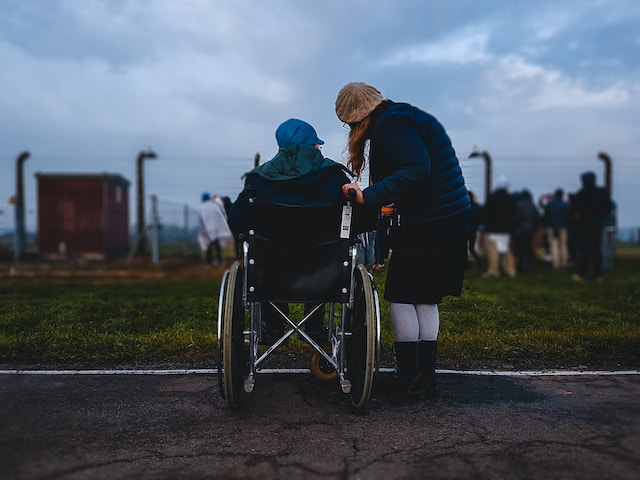
Ableism
What is ableism?
Ableism is discrimination and social prejudice in favor of able-bodied people, based on the belief that typical abilities are superior. (Able-bodied people are those without a disability). At its core, ableism functions under the assumption that disabled folks need to be “fixed.” Like racism and sexism, ableism classifies an entire group of people as “less than.” This can include harmful stereotypes, misconceptions, and generalizations of disabled people.
Examples
- Lack of compliance with disability rights laws like the ADA
- Buildings without braille on signs, buttons, etc.
- Refusing to provide reasonable accommodations
- Inspiration porn
- The eugenics movement of the early 1900s
- The mass murder of disabled people in Nazi Germany
Everyday Examples
- Meeting friends at a restaurant that doesn’t have a wheelchair ramp when one of your friends attending is in a chair
- Framing disability as either tragic or inspirational
- Making movies or videos that don’t have closed captioning
- Using the accessible bathroom stall when you could have used the non-accessible stall without any pain or risk of injury
- Asking invasive questions to a disabled person
- Questioning if someone is “actually disabled”
Microaggressions
Microaggressions are small, everyday verbal or behavioral expressions that communicate a negative slight or insult in relation to someone’s identity (like gender, sex, disability, etc.) Most times, people don’t mean to be insulting. They may even have good intentions, but these microaggressions are still microaggressions.
Examples
- You’re so re*****d.
- I’m so OCD about germs.
- You’re acting so bi-polar today.
- His ex is acting so psycho.
Phrases like this imply that disability makes a person less than because disability is bad or negative, or something to be fixed. When really, it’s a normal and inevitable part of human experience.
How can we unpack our own ableism?
- Believe people when they disclose a disability.
- Provide reasonable accommodations when folks ask for them.
- Never touch a person or their mobility aid without their consent.
- Talk about disability with children and young people.
- Incorporate accessibility into your event planning.
- Make sure disabled folks are at the table where decisions are being made.
Prompt
Make a list of 5 things you can do in your everyday life that challenge ableism.
Unpack Your Ableism Events by Fishtown Wellness
Make sure you check out our two “Unpack Your Ableism” events, linked below.
https://www.eventbrite.com/e/unpack-your-ableism-anti-oppressive-strategies-therapeutic-tools-tickets-663621749517?aff=ebdssbdestsearch











